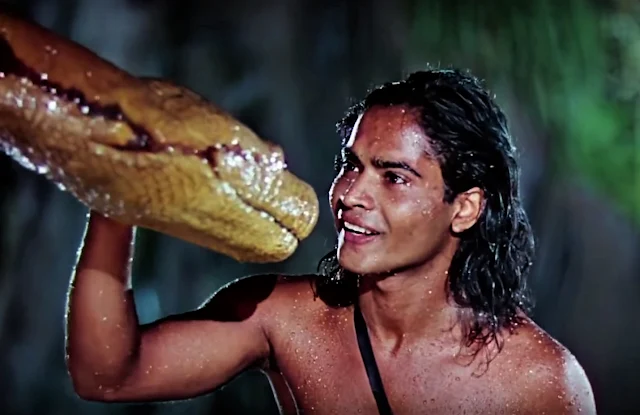Did Tom Joad's descendants vote for Donald Trump? Do Marfa Lapkina's support Vladmir Putin? John Ford's
The Grapes of Wrath begins with a tractor pushing people from the land they've worked, while
The Old and the New (Sergei Eisenstein and Grigori Aleksandrov, 1929) ends with a tractor helping people harvest their crops. It's just coincidence that I watched two movies about oppressed farm laborers on consecutive nights, but the juxtaposition set me thinking about the ways in which movies lie to us about matters of politics, history, and social justice (among other things). In both cases, a core of truth was pushed through filters: in Eisenstein's, that of the Soviet state, in Ford's that of a Hollywood studio. So in the case of
The Old and the New we get a fable about the wonders of collectivism and technology, whereas in
The Grapes of Wrath we get a feel-good affirmation of the myth that "we're the people" and that we'll be there "wherever there's a fight, so hungry people can eat." Both films are good, but neither, despite many claims especially for
The Grapes of Wrath, is great, largely because their messages overwhelm their medium. Movies are greatest when they immerse us in people's lives, thoughts, and emotions, not when they preach at us about them. It's what makes William Faulkner's
As I Lay Dying a greater novel than John Steinbeck's
The Grapes of Wrath. Both are superficially about the odysseys of two poor white families, but Faulkner lets us live in and with the Bundrens while Steinbeck turns the Joads into illustrated sociology. Ford won the second of his record-setting four Oscars for best director for this film, and it displays some of his strengths: direct, unaffected storytelling and a feeling for people and the way they can be tied to the land. It has some masterly cinematography by Gregg Toland and a documentary-like realism in the use of settings along Route 66. The actors, including such Ford stock-company players as John Carradine, John Qualen, and Ward Bond, never let Hollywood gloss show through their rags and stubble -- although I think the kids are a little too clean. Nunnally Johnson's screenplay mutes Steinbeck's determination to go for the symbolic at every opportunity -- we are spared, probably thanks for once to the censors, the novel's ending, in which Rosasharn breastfeeds an old man. But there's a sort of slackness to the film, a feeling that the kind of exuberance of which Ford was capable in movies like
Stagecoach (1939) and
The Searchers (1956) has been smothered under producer Darryl F. Zanuck's need to make a Big Important Film. I like Henry Fonda in the movie, but I don't think he's ever allowed to turn Tom Joad into a real character; it's as if he spends the whole movie just hanging around waiting to give his big farewell speech to Ma (Jane Darwell, whose own film-concluding speech won her an Oscar).



